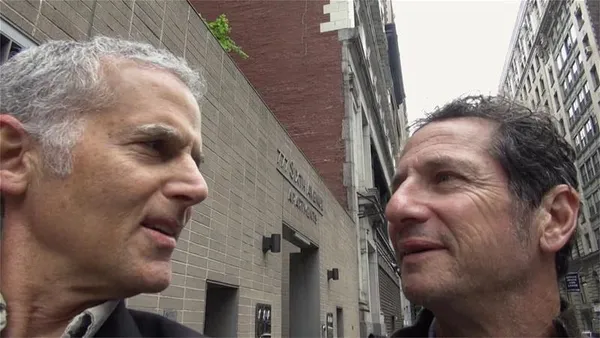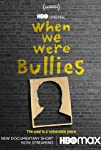Eye For Film >> Movies >> When We Were Bullies (2021) Film Review
When We Were Bullies
Reviewed by: Jennie Kermode

I’m sorry. Everyone feels bad about it now. Everyone wishes you well. It was a different time.
If you were ever bullied, and you’ve reconnected with the people who did it, these will be familiar lines. Variants on every one of them appear in Jay Rosenblatt’s film, positioned near the end, framed as if they mean something. If Rosenblatt expects them to impress the victim, he is sadly deluded – but this is one of those films whose real power lies outside the span of its intentions.
Although there are any number of films out there which explore the experience of being bullied, few reflect on the psychology of bullies themselves. This one begins with Rosenblatt’s realisation – prompted by an old educational film – that he once collaborated in bullying himself. When he happens to meet Richard J Silberg, who went to the same elementary school, they discuss the incident which still stands out in both their memories – and, indeed, in those of their other surviving classmates. A boy who is blamed by the teacher, Mrs. Bromberg, for keeping everybody else in their seats, in silence, for an extra ten minutes after they would have got to go home, and who is then surrounded in the playground by a mob, kicked and punched and otherwise mistreated in a situation which is totally out of control.
It’s that sense of being out of control, that sudden awareness that anything could happen, that makes events like these memorable, but here that lingering fascination is easily mistaken for remorse. Of course the scenario seems horrifying to adults. Some of those involved reflect on how they would feel if it had been their kids or grandkids on the receiving end. Tellingly, hardly anyone reflects that it might have been them.
“I’m not sure anyone will want to watch it. It could be quite tedious,” says Mrs. Bromberg of the film – now nominated for an Oscar – when Rosenblatt tracks her down. The incident does not stand out in her memory. She witnessed many like it. Nor is there any suggestion that it has occurred to her that she was a bully, punishing all the kids for the infraction of one, or that she ought to have known what that kind of action would lead to.
The victim does not feature in the film, though we do briefly learn a bit about what has happened to him since. It’s not really a film about him – it’s about the bullies themselves, Rosenblatt observes, as if that were not true of almost every act of bullying. And yet it’s these gaps in awareness on the part of the filmmaker and his contributors which are really fascinating. They’re contextualised by the landscape, the school and the streets around it, the whole world when they were kids. Rosenblatt and Silberg climb into the playground over the gates. The continuity of experience is explicit, as is the unbreached gap in experience. The ability to sympathise, genuinely, but not really to empathise – the price of privilege.
Rosenblatt’s life has not been without pain. There is talk of a considerable personal loss he faced in childhood. He notes that we are all shaped by pain, which is fair, though there is perhaps a leap from there to the assumption that one type of pain provides deep insight into another. What emerges is a picture of chaos which goes beyond that one violent incident; which is found in every collection of children thrown together in the arbitrary space of schooling, each child troubled on some level and unknowingly separate. This story of bullying brings people together as, briefly, the bullying itself did. Order emerges. Shared rules are invented and enforced. Awareness of what’s happening is not really necessary. Its absence is half the story.
Reviewed on: 24 Mar 2022

















